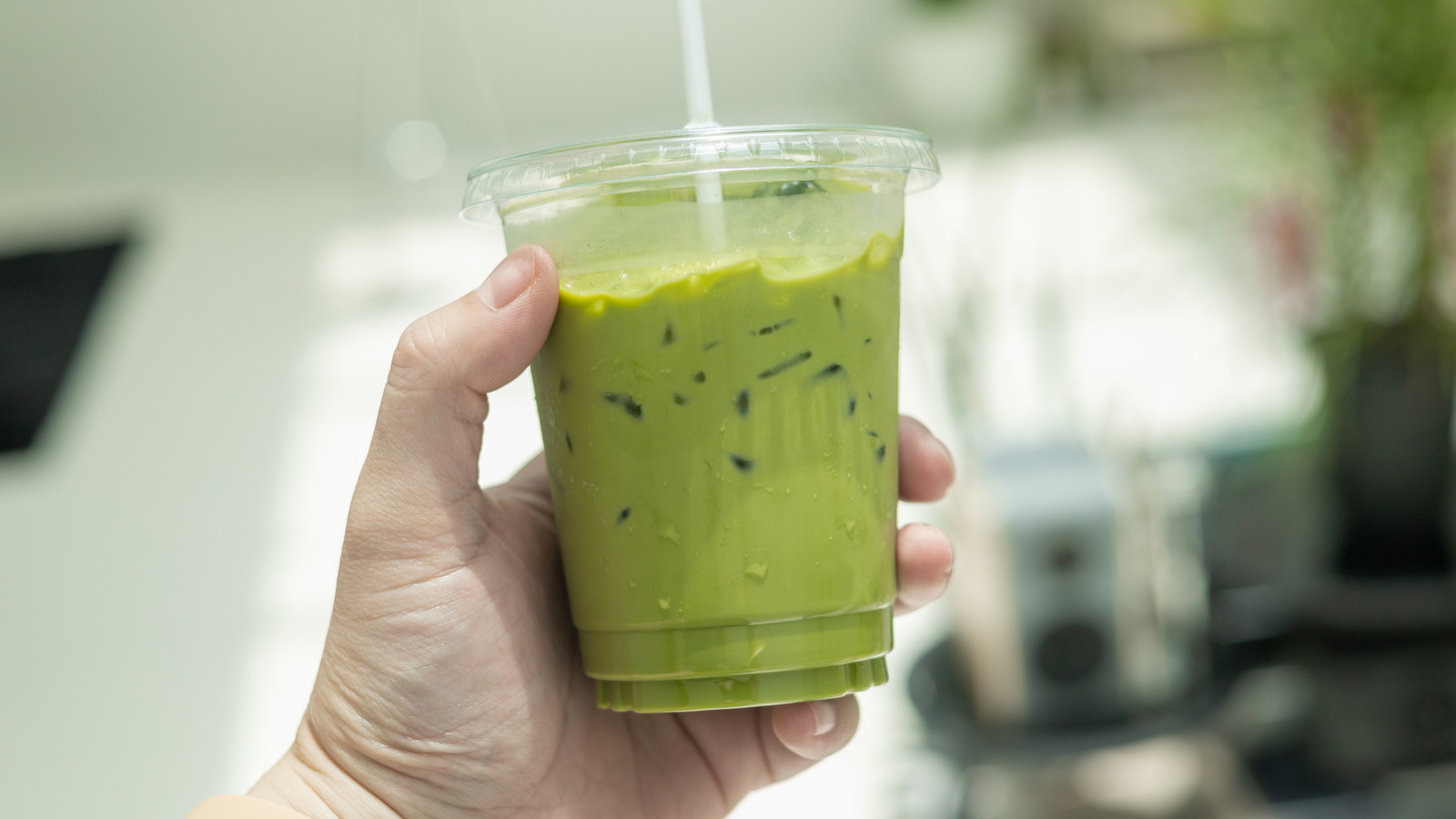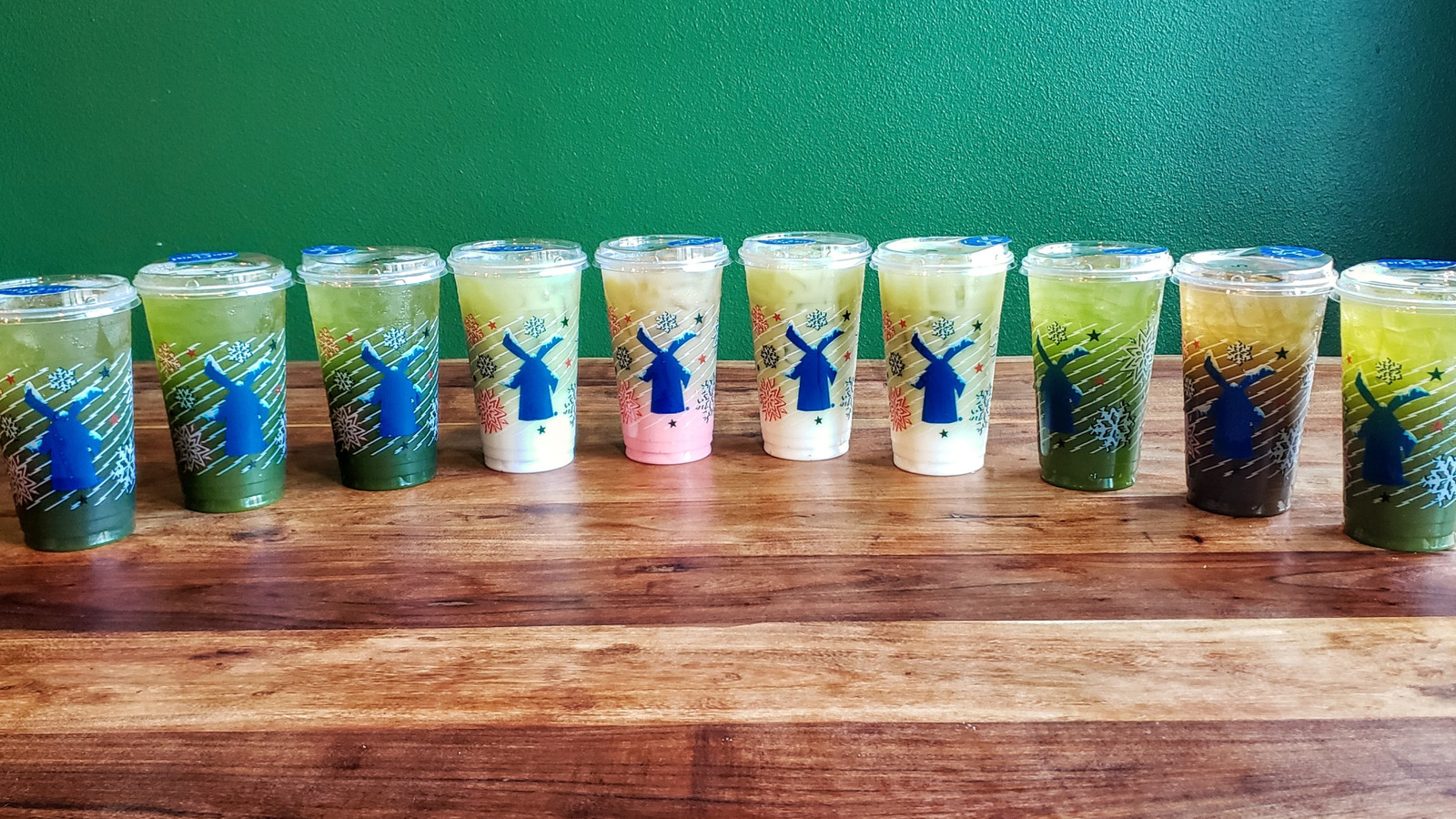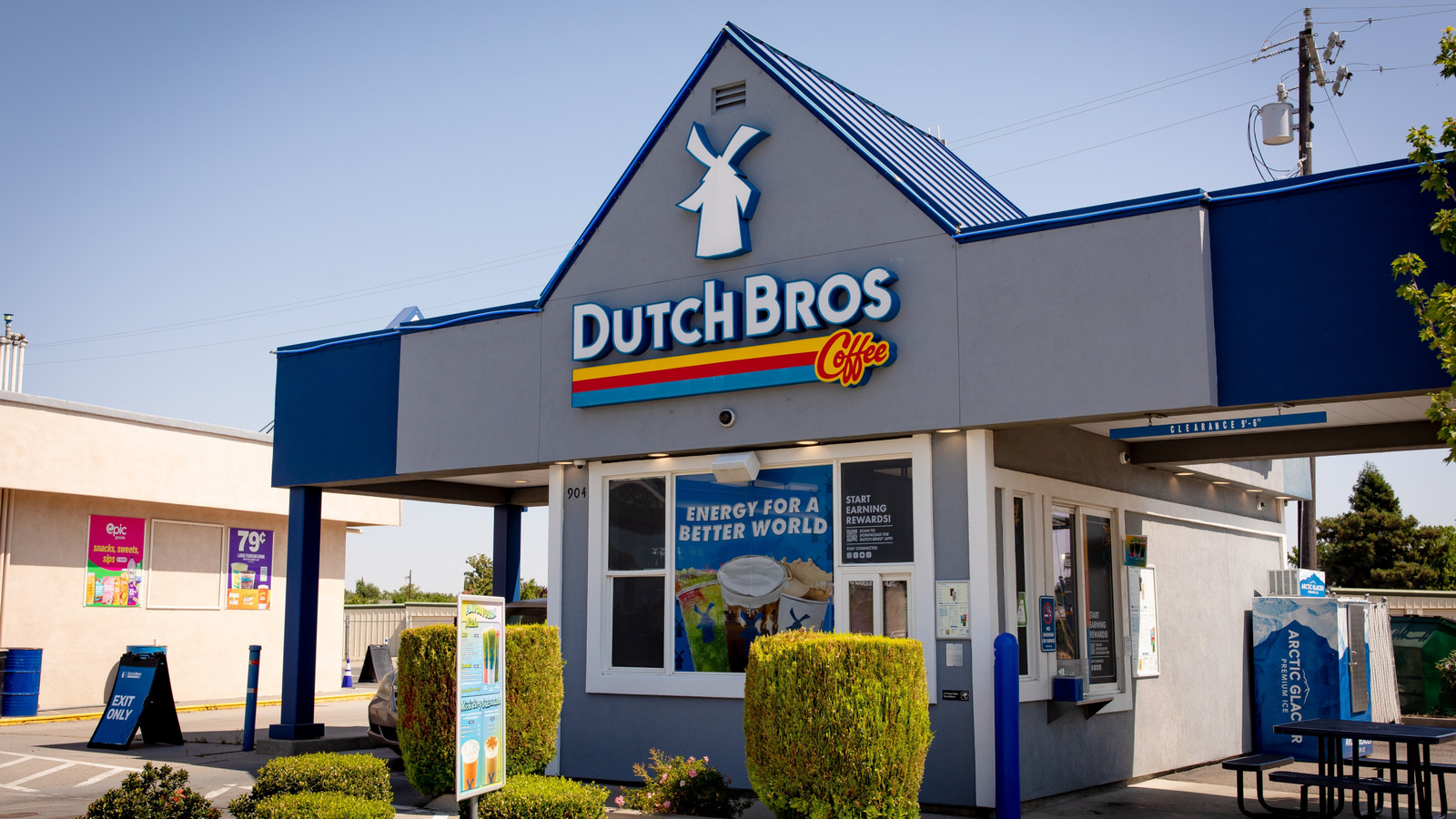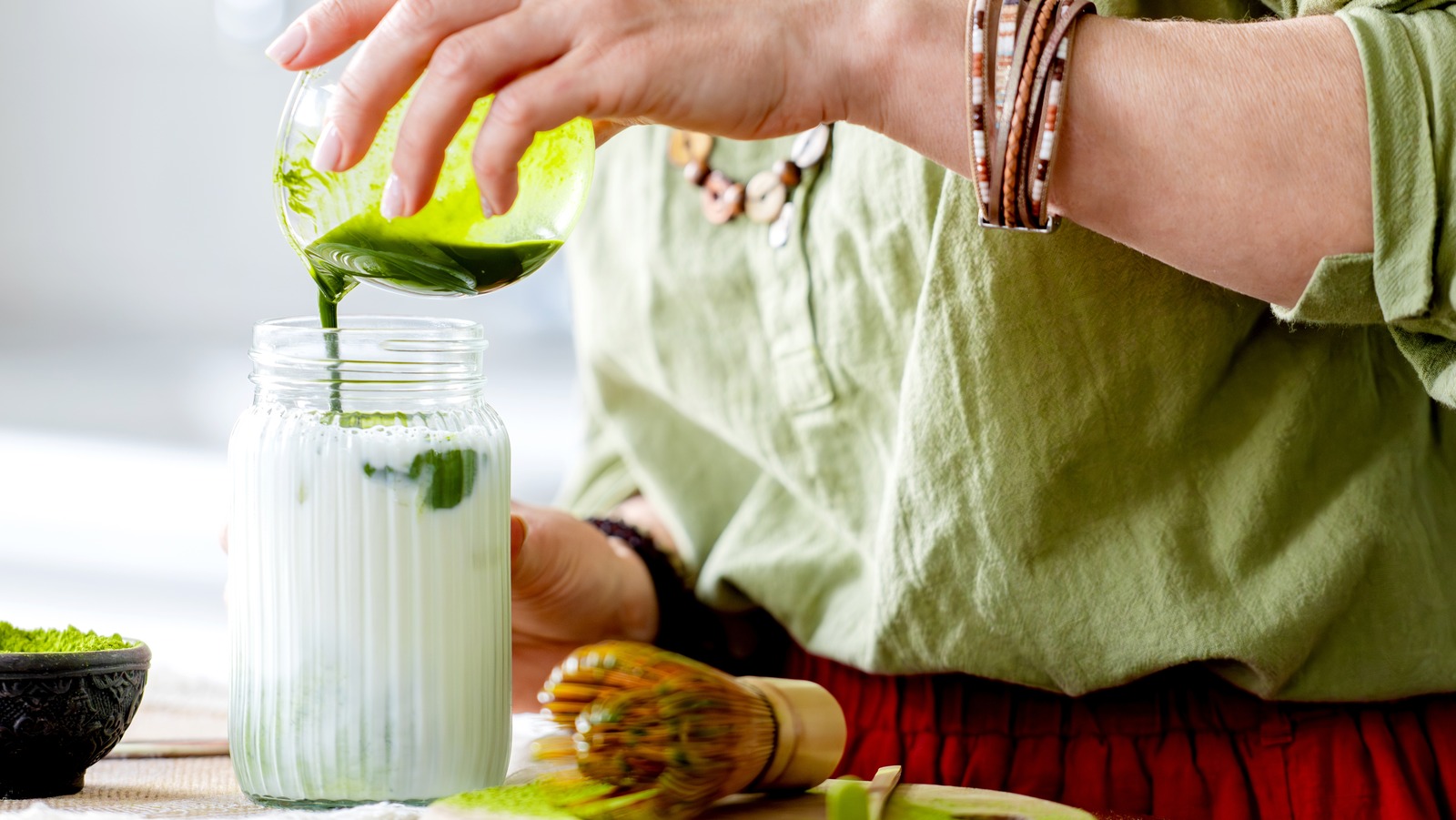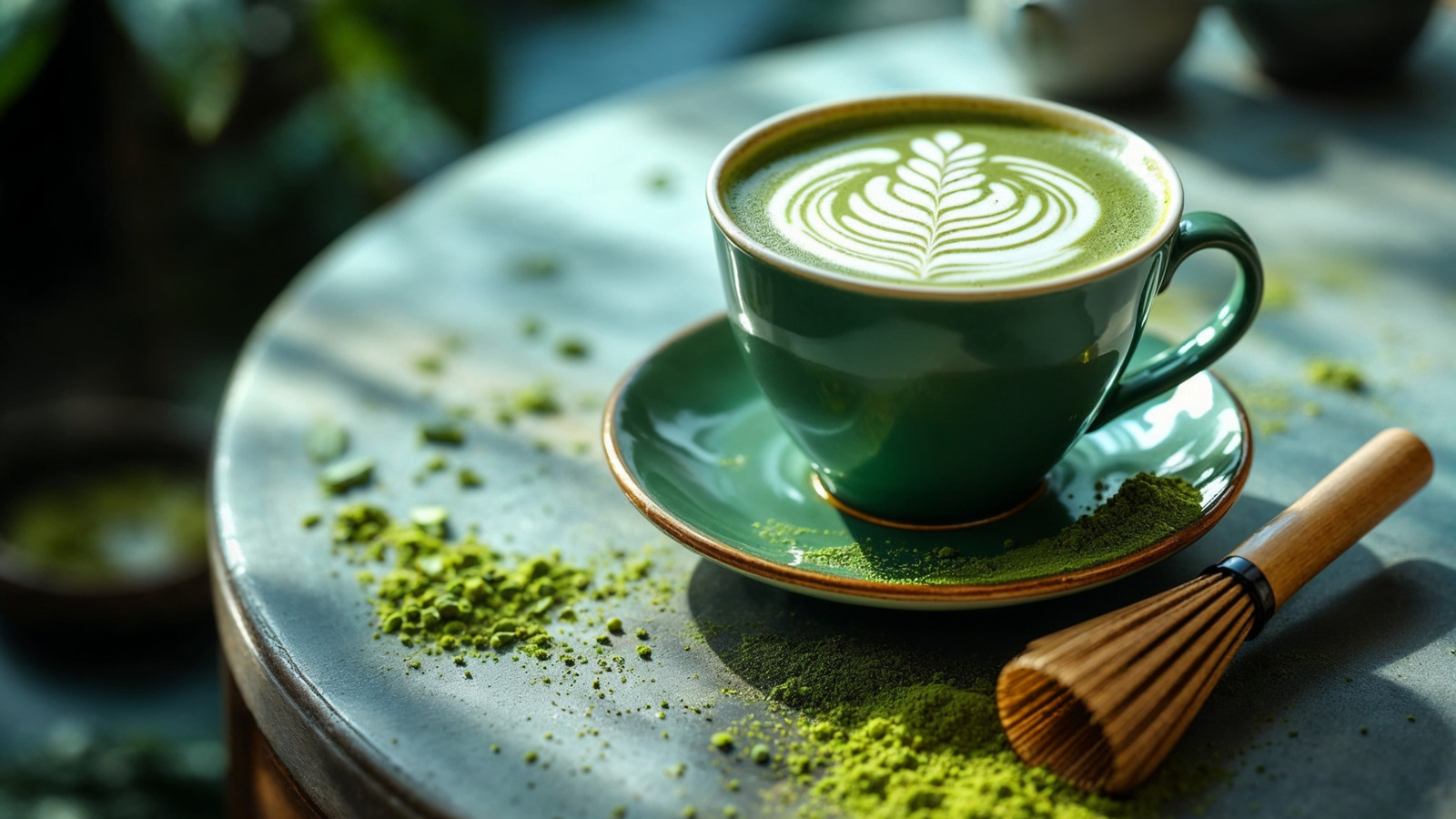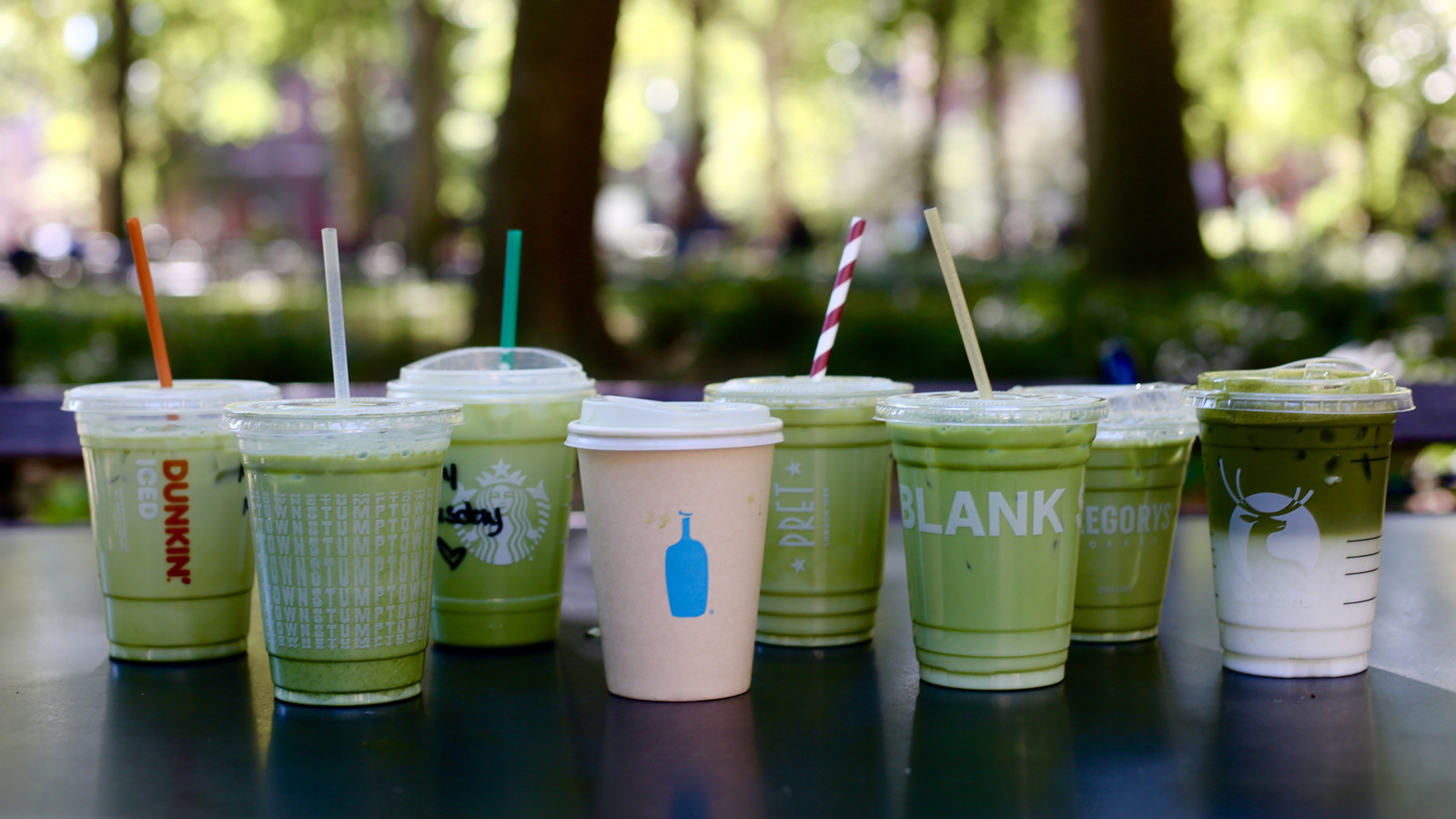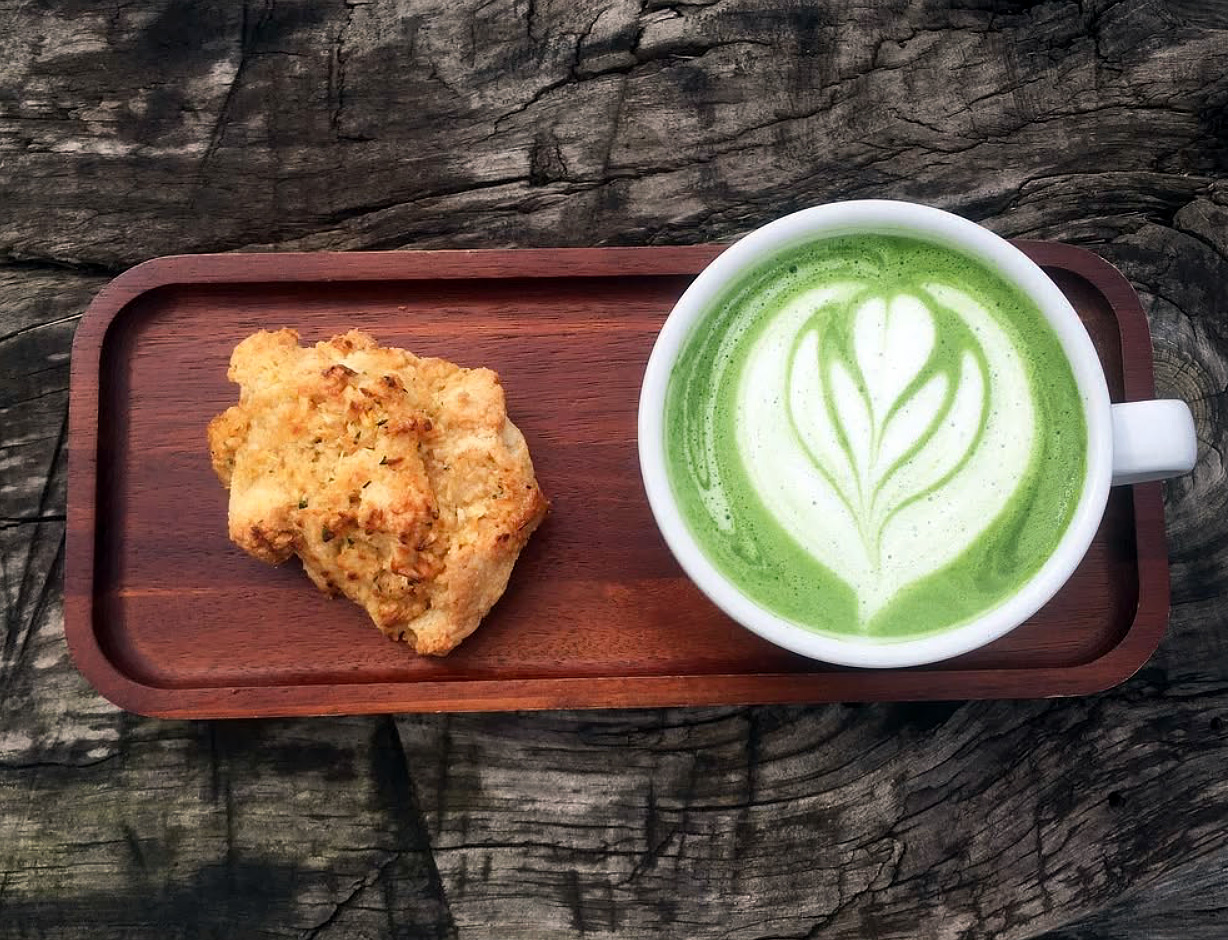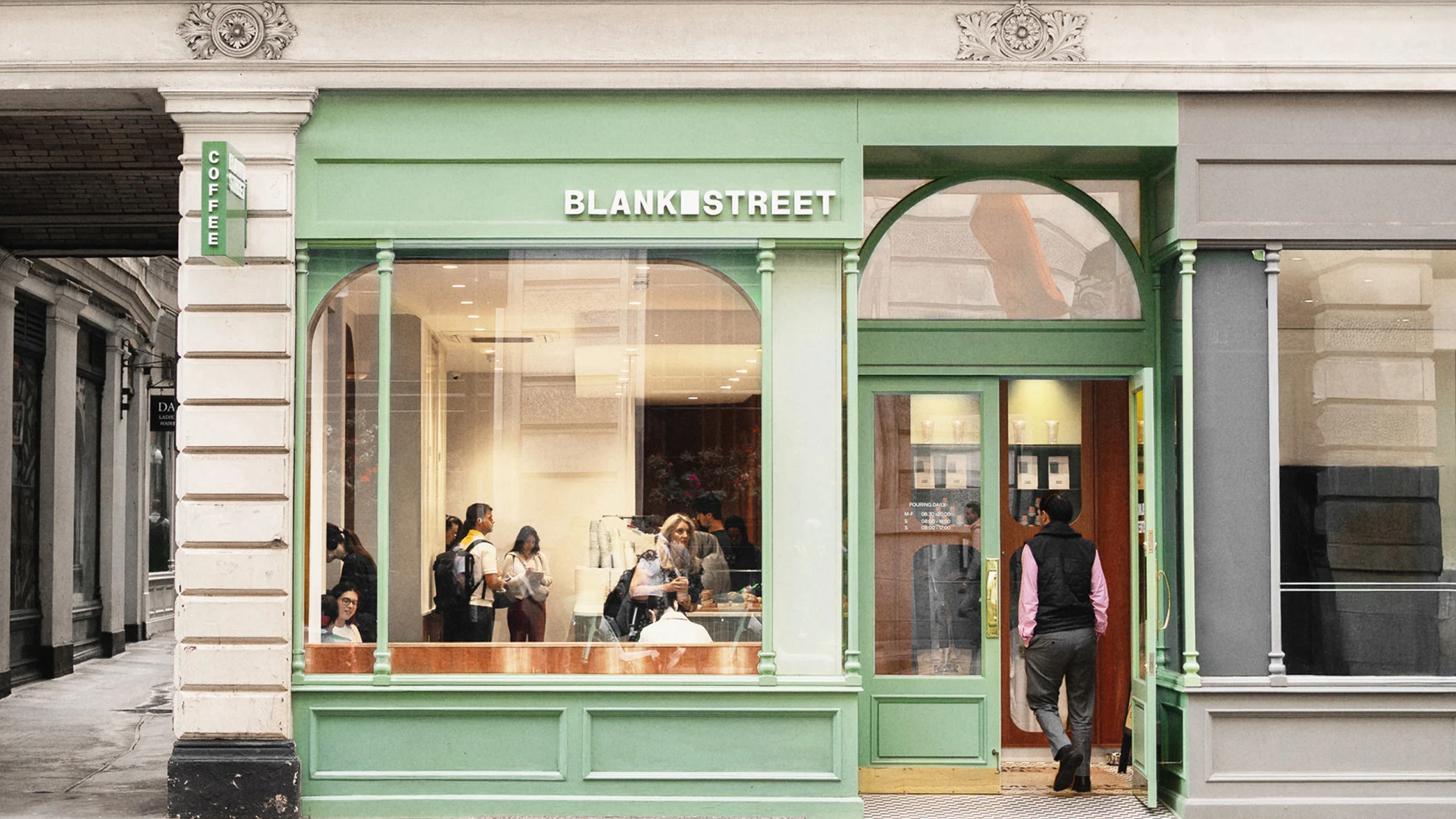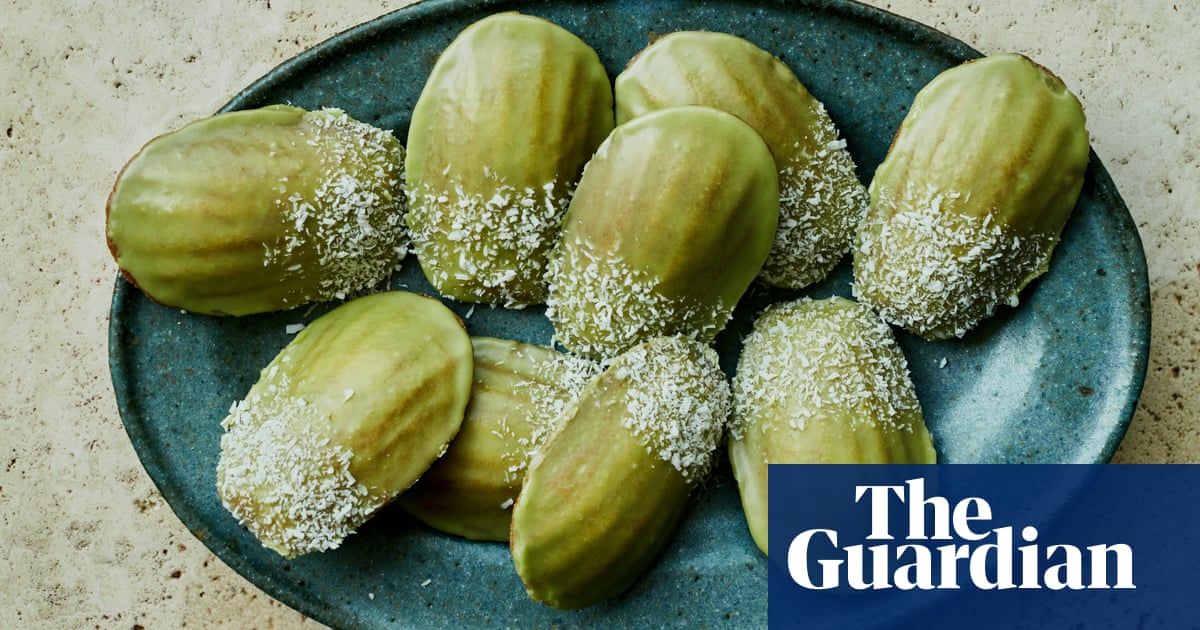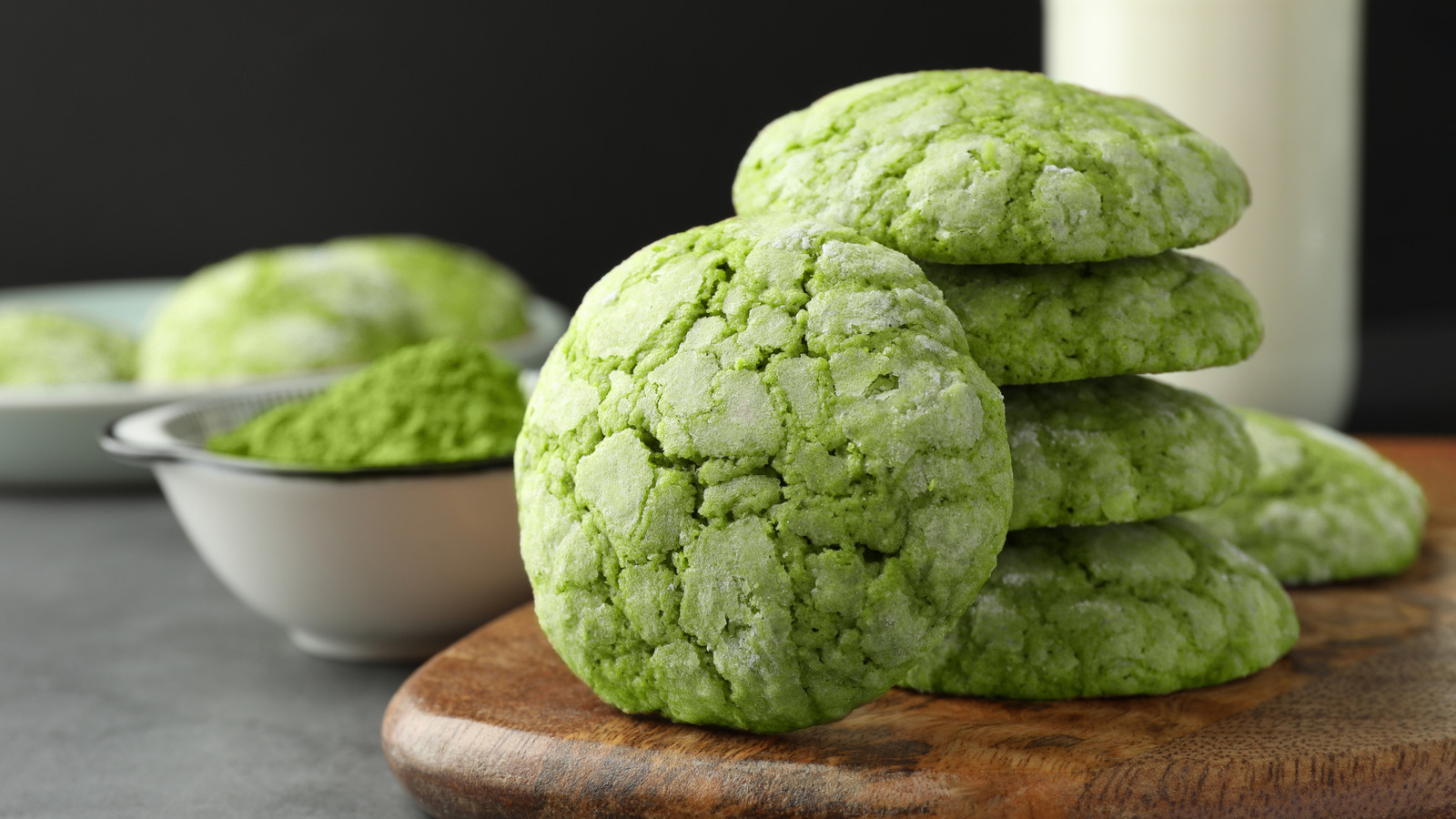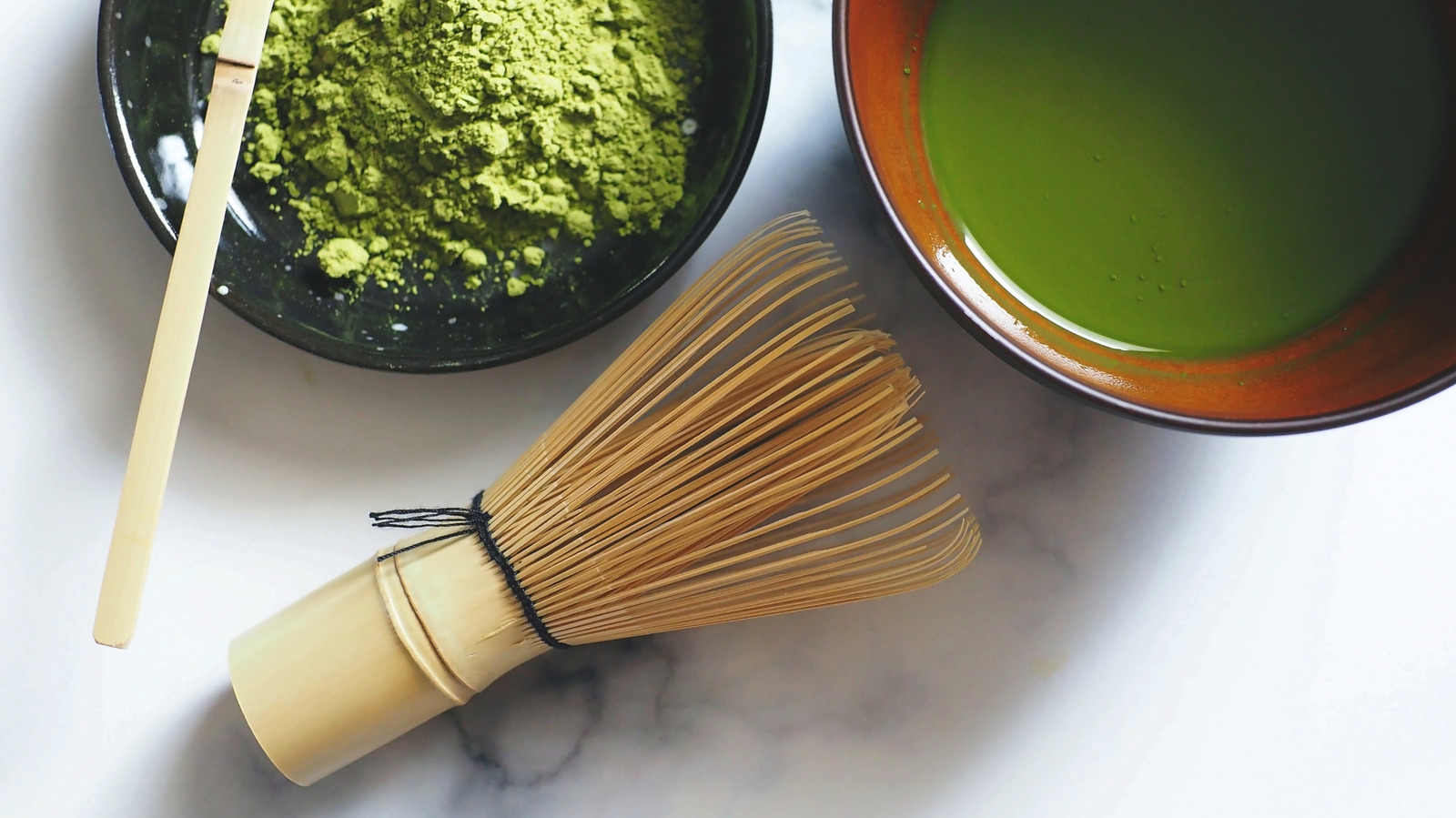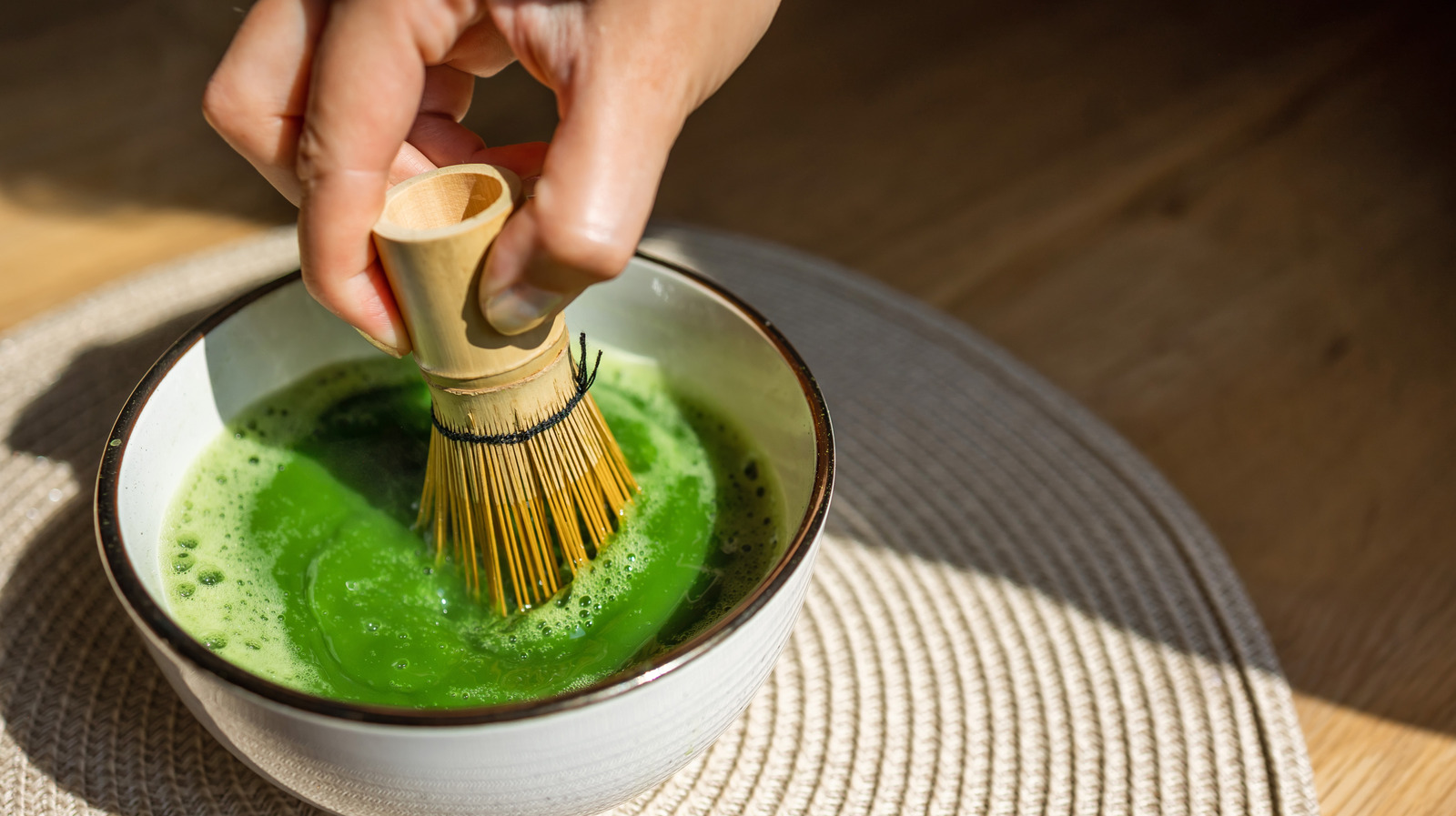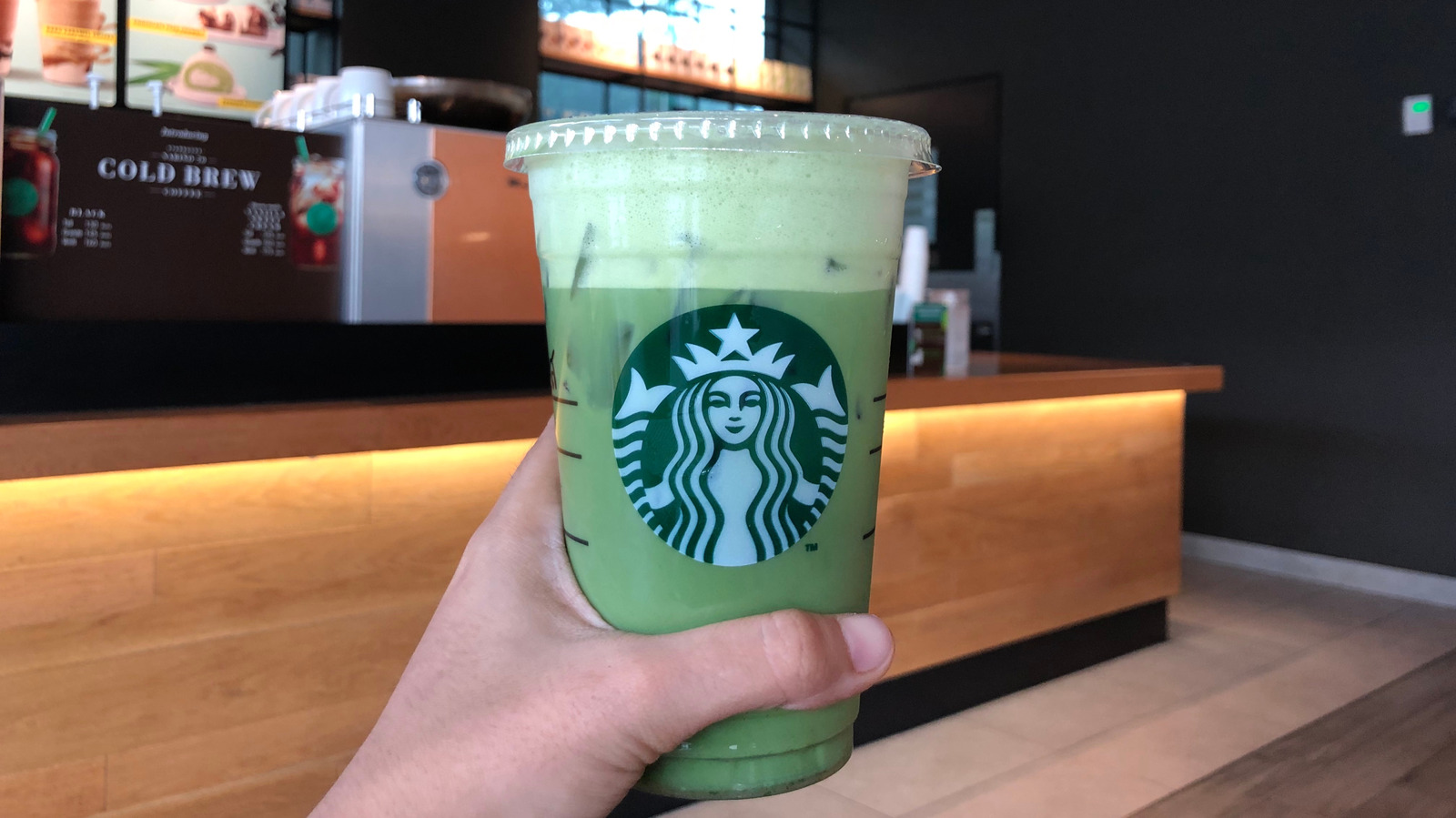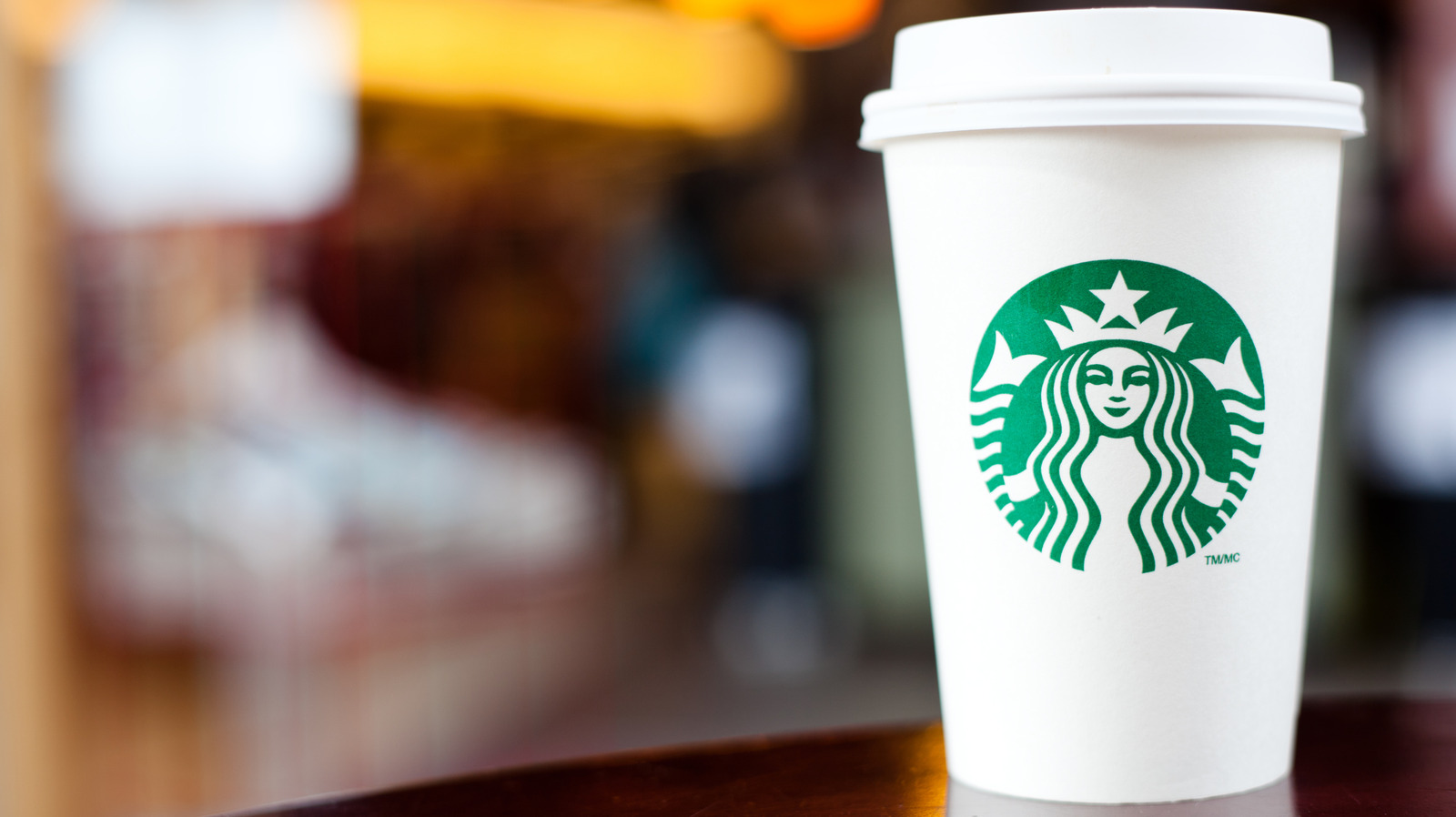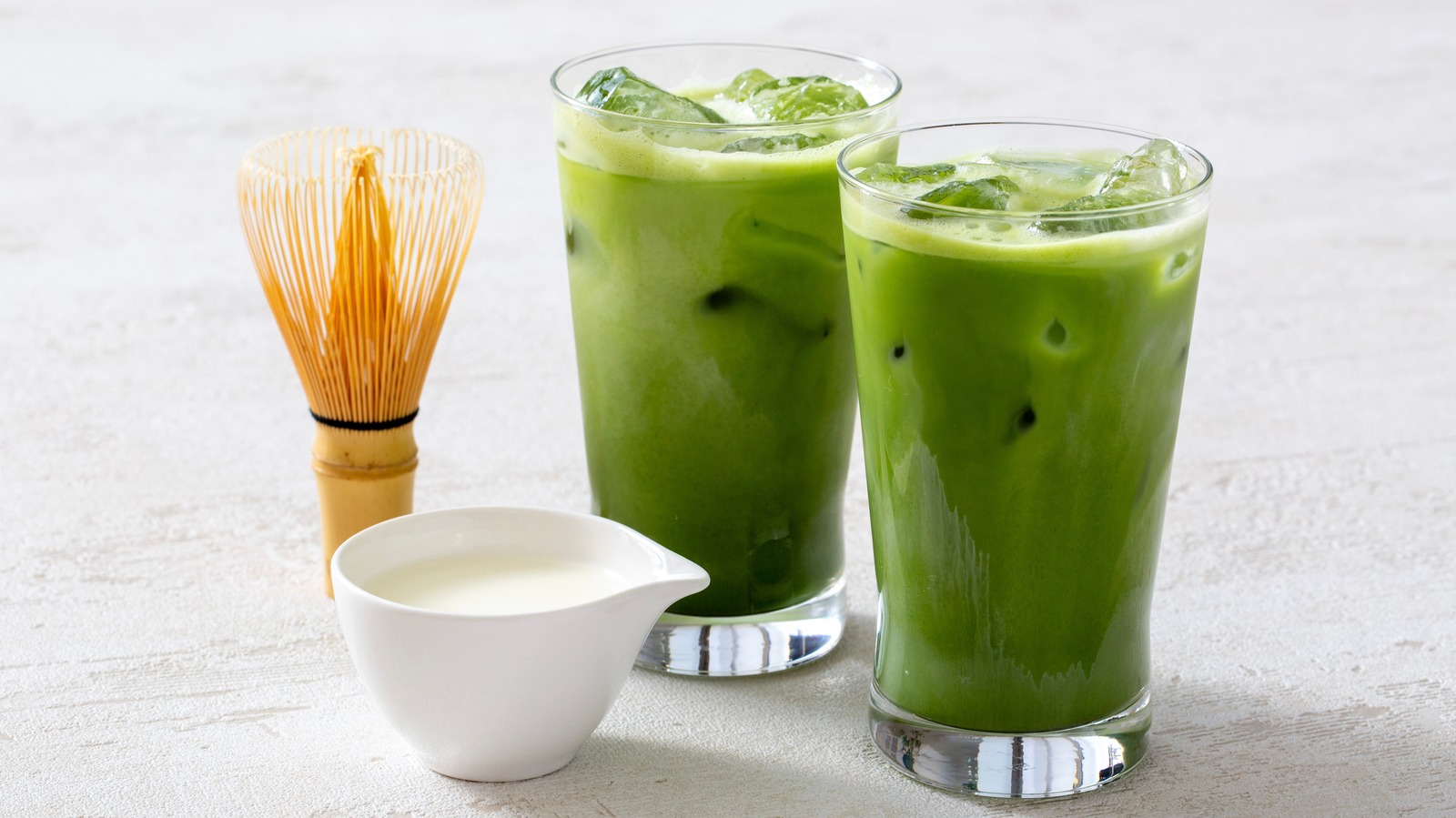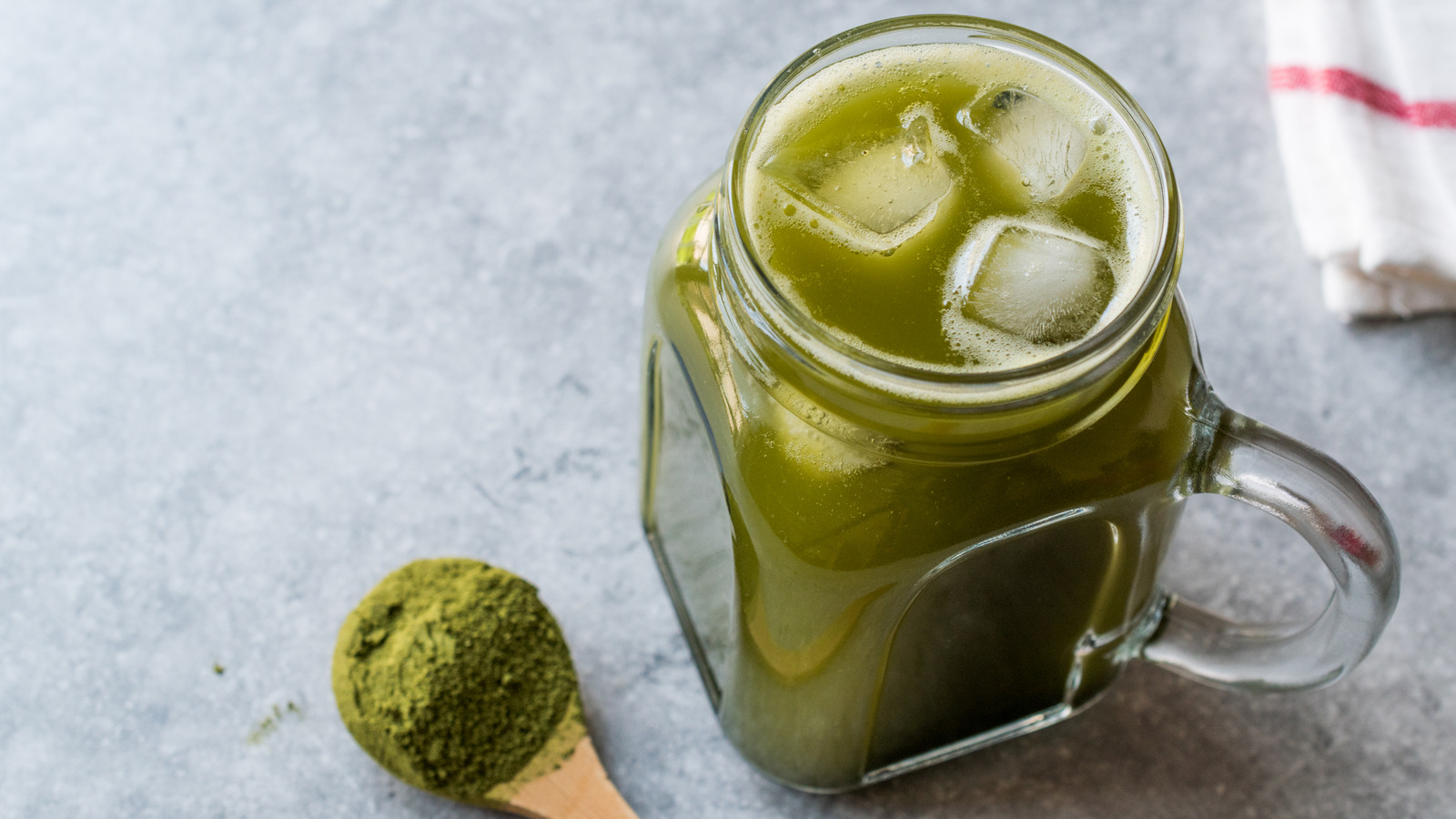#matcha
#matcha
[ follow ]
#health-benefits #beverages #supply-shortage #tea-preparation #baking #tea #japanese-tea #desserts #tariffs
fromwww.theguardian.com
1 week agoHomemade Bounty bars, savoury granola and flapjacks: Melissa Hemsley's recipes for healthy sweet treats
Prep 5 min Cook 30 min Chill 30 min+ Makes 24 bars 200g bar creamed coconut 6 tbsp coconut oil 3 tbsp maple syrup, or runny honey 1 tsp vanilla extract 1 tsp good-quality matcha powder 1 pinch sea salt 150g desiccated coconut 200g dark chocolate (more than 65% cocoa is ideal), roughly broken Flaky sea salt, to sprinkle (optional)
Cooking
fromBoston.com
2 weeks ago5 best new restaurant openings and dining updates in Boston (Jan. 15, 2026)
The new year is already off to a great start when it comes to restaurant openings and fresh updates in Greater Boston's dining scene. In the months ahead, we have major restaurant openings from Michelin chefs and famous New York restaurateurs, as well as a swell of diverse and delicious smaller restaurants joining our neighborhoods. Each week, Boston.com will highlight the restaurant openings worth knowing about across the region.
Food & drink
fromTasting Table
2 weeks agoFor A Unique Spin On Overnight Oats, Take Inspiration From A Popular Drink - Tasting Table
Here at Tasting Table, we're proud proponents of an unexpected overnight oats combo. Today, we're shining the spotlight on one avant-garde flavor idea to make your overnight oats less boring - and it stars an ingredient that tea-lovers might already have stocked in their pantries: matcha. Matcha powder can work wonders in non-bevy recipes, like this matcha pudding with sweet red bean paste, or this matcha strawberry tiramisu, and it totally belongs in your breakfast rotation.
Food & drink
fromThe Conversation
3 weeks agoHow tourism, a booming wellness culture and social media are transforming the age-old Japanese tea ceremony
One of Japan's most recognizable cultural practices - the Japanese tea ceremony, known as chanoyu, or chadō - is being reshaped by tourism, wellness culture and social media. Matcha, the Japanese powdered green tea that is used during the ceremony, has entered the global marketplace. Influencers post highly curated tearoom photos, wellness brands market matcha as a "superfood," and cafés worldwide present whisked green tea as a symbol of mindful living.
Philosophy
fromwww.theguardian.com
1 month agoGreen sleeves? Laundry detergent being tweaked owing to gen Z's love of matcha
It used to be curry sauce, egg yolk and red wine that ruined Britain's clothes but in a sign of the times laundry detergents are being reformulated to tackle stains left by matcha lattes, Aperol spritz and bubble tea. In a month when year-end gongs are dished out, from BBC Sports Personality to Pantone's Colour of 2026 (a white called cloud dancer), matcha has received the dubious accolade stain of the year.
Food & drink
fromTasting Table
2 months agoFor High-Quality Matcha, Order At This Popular Coffee Chain - Tasting Table
We recently tested eight matcha drinks from popular coffee chains and our favorite by far was the matcha latte from Blue Bottle. Our expert was pleasantly surprised by the drink, which didn't look too promising at first glance. But they knew after one sip that it was the real deal. The matcha flavor was strong and vibrant, with a perfect bitterness that mellowed out over time.
Coffee
fromTasting Table
2 months ago18 Bubbies Mochi Ice Cream Flavors, Ranked - Tasting Table
Is the Bubbies mochi ice cream brand on your radar? No? Well, it definitely should be. I don't know why mochi ice cream isn't a booming product on the market right now - the only mochi ice cream I'd tried prior to this tasting came from Trader Joe's (though I know My/Mochi's flavors are pretty well-known). After trying Bubbies' full lineup of mochi ice cream flavors, though, I won't be able to look past the handheld snack-slash-dessert when I see it.
Food & drink
fromBon Appetit
2 months agoFellow's Matcha Set Turns Your Morning Ritual Into a Beautiful Display
Fellow makes minimalist, practical gear from kettles-the aspirational kettle of choice in most sleek coffee shops and beautiful boutique hotels-to coffee grinders and espresso machines. My white Fellow Corvo EKG kettle is one of the appliances that I intentionally leave out on my kitchen counter for when I make tea and, more specifically, matcha. Now Fellow has continued branching out, creating a seamless, branded matcha experience with their five-piece matcha set,
Coffee
New York City
fromEater NY
2 months agoA New East Village Restaurant From Japan Touting Tsukemen - and More NYC Openings to Know in November
Multiple new restaurants and bars opened across New York City in early November, including a matcha tasting cafe, Vietnamese-Mexican Falansai 2.0, a sports bar, and a cocktail bar.
Cooking
fromBuzzFeed
3 months agoThese "Monster" Cookies Have One Secret Ingredient That Changes Everything
Monster-sized matcha-miso cookies combine culinary-grade matcha, red miso, white and semisweet chocolate chips, and macadamia nuts; chill dough and bake until edges are golden and centers are soft.
fromArchitectural Digest
3 months agoThe Best Matcha Cups Bring Style to Your Caffeine Rituals
Though matcha cups aren't a requirement to make delicious tea, they certainly bring some beauty to the ritual. In case you haven't noticed, we're currently in the midst of a matcha craze, and if you're lucky enough to get your hands on the good green powder, having the right tools to properly prepare it can be the difference between tolerating your caffeine intake versus truly enjoying it.
Food & drink
Marketing
fromBusiness Insider
3 months agoGen Z is redefining the 'lipstick effect' with matcha and designer sneakers
Gen Z pursues affordable affluence through micro-luxuries—matcha, resale sneakers, and multifunctional cosmetics—that signal cultural relevance, self-improvement, and value without large spending.
fromglutenfreeandmore.com
4 months agoWhite Chocolate Matcha Martini A Creamy Cocktail with a Twist
Looking for a cocktail that's as beautiful as it is delicious? Enter the White Chocolate Matcha Martinia creamy, indulgent drink with a sophisticated edge. It's sweet, smooth, and just a little earthy thanks to the matcha. Whether you're hosting a dinner party, celebrating a special occasion, or just want to treat yourself, this cocktail is guaranteed to impress. What makes this martini so unique is the balance of flavors.
Cocktails
fromABC7 Los Angeles
4 months agoHow much for matcha? Prices for the popular powdered tea soar due to global demand
For Americans, there's the added impact of tariffs. Imports from China are currently subject to a 37.5% tariff, while the U.S. has a 15% tariff on imports from Japan. It's not clear if tea will be exempted from tariffs because it's a natural product that's not grown in significant quantities in the U.S. - an accommodation that the Trump administration has made for cork from the European Union. The Commerce Department and the U.S. Trade Representative didn't respond to messages left by The Associated Press.
Food & drink
Food & drink
fromFortune
4 months agoSenior tea buyer sees 'enormous' price increase coming: 'It's going to be a bit of a tough ride for matcha devotees' | Fortune
Surging global matcha demand, poor harvests, labor shortages, and steep U.S. tariffs are driving significant price increases for matcha this year.
fromTasting Table
4 months agoDo You Really Need A Matcha Whisk Holder? - Tasting Table
"If you don't have a stand, put the whisk with the handle side down after washing," the tea expert tells Tasting Table. Additionally, Choe advises us to avoid placing the whisk prong-side down because the prongs "are the most important part of a whisk." A matcha whisk holder allows the bamboo material to breathe as it dries, which prevents molding and warping.
Food & drink
fromTasting Table
4 months agoMaking Matcha Without A Bamboo Whisk Is Easy With This Simple Hack - Tasting Table
About the dreaded clumping: They're actually a sign of a high-quality powder! Matcha is made from stone-milled green tea leaves, which makes it especially prone to static cling and humidity-related unevenness. And just as flour or powdered sugar benefits from sifting, matcha powders want to form little lumps. Shaking with enough force breaks those clusters apart, while adding the water first reduces the powder's chance to bind to itself.
Food & drink
fromABC7 San Francisco
5 months agoUS matcha shortage: Here's how SF's Japanese-owned businesses are dealing with it
There's no denying the "matcha boom" in the last two years. Matcha-flavored desserts and drinks are just about everywhere you like. According to data from the Trade Statistics of Japan Ministry of Finance, 78% of all powdered green tea exported from Japan -- which includes matcha powder -- went to the U.S. in 2024. Like anything that comes with high demand, there's also going to be a higher price tag.
US politics
fromTasting Table
5 months agoWhat Makes Matcha So Expensive - Tasting Table
If you're aware that matcha is a type of green tea, you're probably wondering why it's so much more expensive than other varieties. Of the three types of matcha, top-tier ceremonial grade runs upwards of $45 per ounce, and even the most affordable matcha for cooking can cost around $6 per ounce. Compared with regular green tea, which costs around $2.50 per ounce, matcha is considerably pricier.
Food & drink
Wellness
fromBusiness Insider
5 months agoInside a matcha rave, where Gen Zers go wild for ice-cold brews, sober partying, and getting home at a reasonable hour
Sober daytime nightclub event in Singapore combined matcha drinks with electronic remixes, attracting 400 attendees who partied energetically while keeping early bedtimes.
fromEater Portland
5 months agoAdo About Matcha: How High-End Tea Reselling Led to Legal Threats
In July, Nguyen, Tran, and a Beaverton coffee shop that hosted a Whisk & Bloom event all received letters in the mail threatening legal action if they didn't stop selling Marukyu Koyamaen, a brand of high-end matcha often considered the gold standard of Japanese tea makers.
Portland
Coffee
fromTasting Table
9 months ago12 Ways To Give Your Nespresso Latte A Fresh Spring Twist - Tasting Table
Matcha enhances espresso drinks by adding a refreshing and unique flavor profile, known as 'dirty matcha'.
Lavender lattes are iconic spring offerings that can be easily made at home with simple ingredients.
[ Load more ]
